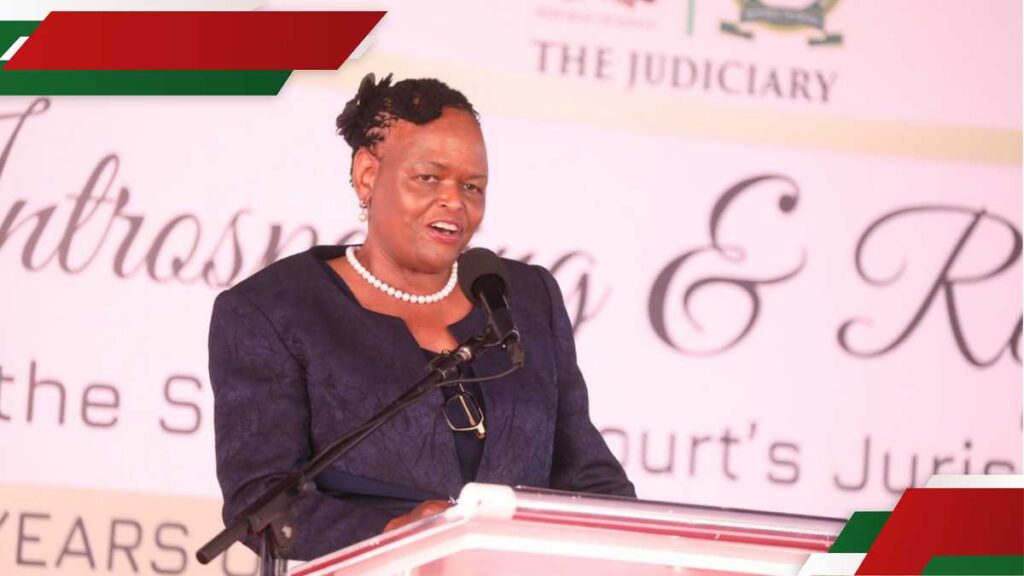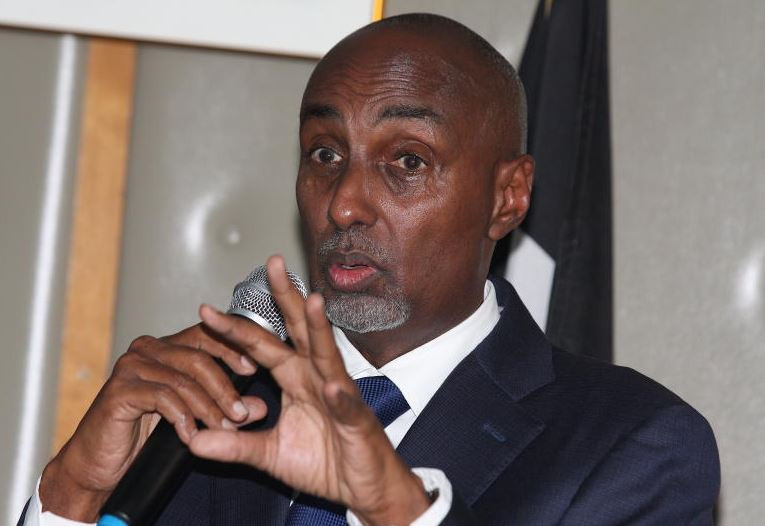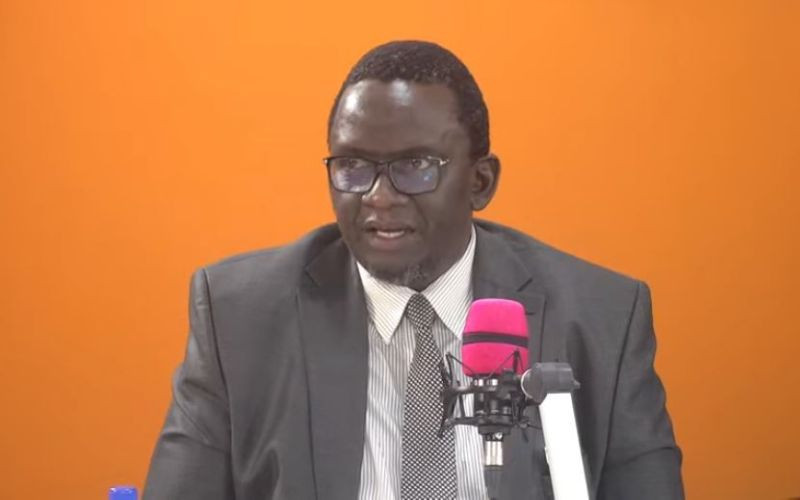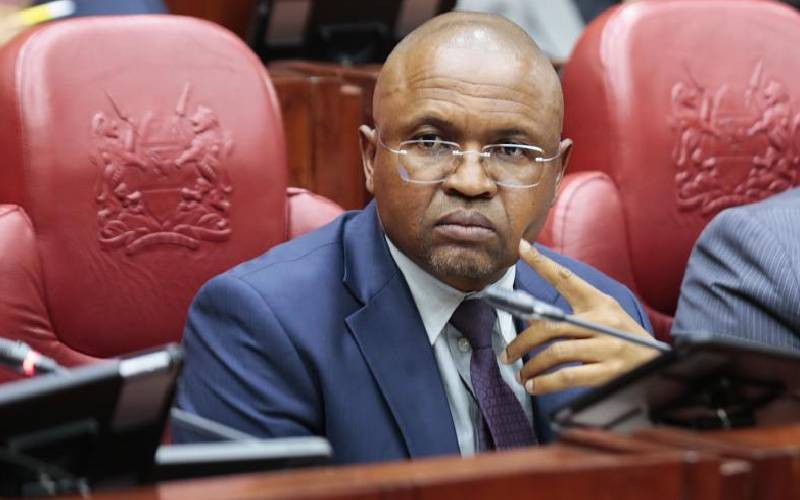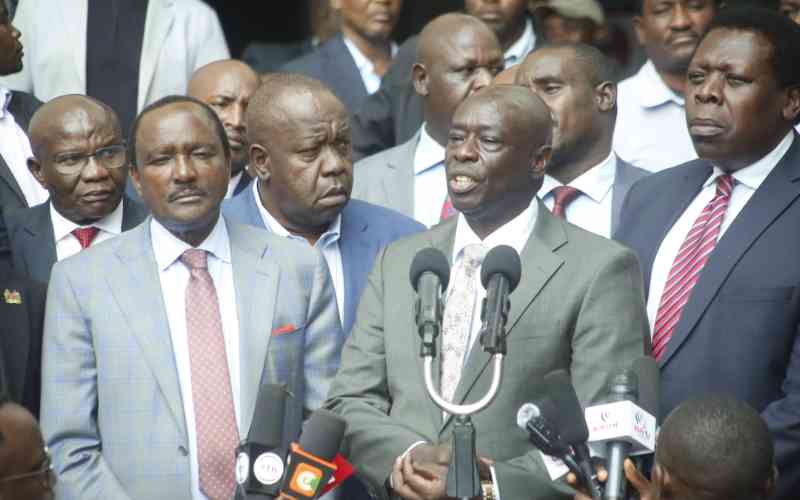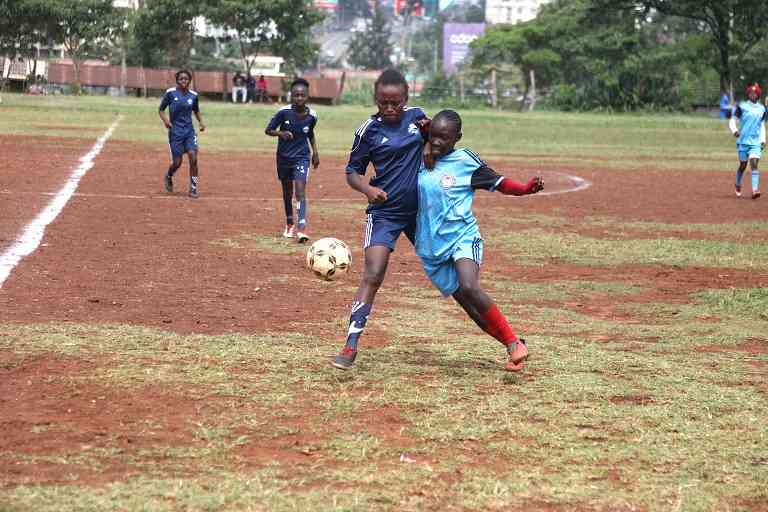The government is developing Mine Health and Safety Regulations to guide the safety and health of persons in mining and enhance safe, proper, sanitary operations.
Mining Cabinet Hassan Joho told the Senate that the State Department for Mining has been actively engaging with the Office of the Attorney General and the Department of Justice on the National Action Plan for Business and Human Rights, Sessional Paper No. 3 of 2021.
Joho was responding to Kisumu Senator Tom Ojienda, who sought to know the regulatory framework existing for mining in Kenya, particularly regarding the safety of miners and prevention of child labour and attendant enforcement mechanisms.
“All mining-related activities in Kenya are governed by the Mining Act Cap. 306 and its attendant subsidiary legislations, which cover licensing and permitting of mineral rights, processing of minerals, dealings in minerals, compliance and enforcement, mine health, safety, and environment, among many other aspects,” said Joho.
He said that the National Action Plan provides a roadmap for addressing human rights impacts associated with business activities and encourages businesses to adopt responsible practices while focusing on key areas such as labour rights, land rights, environmental sustainability, and community engagement.
The Cabinet Secretary told Senators that while the discussions are still in the initial stages, the policy directions that will come out of these discussions will be beneficial to the mining sector and in protecting members from human rights abuses going forward.
He said the prevention of child labour is covered under the Children’s Act 2022 and the Employment Act 2007, which prohibit child labour and outline penalties for offenders, while Kenya has ratified key international conventions, including ILO Convention 138 (Minimum Age) and Convention 182 (Worst Forms of Child Labour).
“Cases of child labour in any mining sites are investigated by the regional office in collaboration with the relevant departments and promptly handled and addressed accordingly, the Act authorises the Cabinet Secretary or mines inspector to enter any mining operation and require such changes as may be necessary in the safety of the operation and protection of employees to be implemented within a specified time, failure to which a license holder is considered to be in breach,” said Joho.
Ojienda asked Joho whether his ministry has conducted assessments or surveys to establish the extent of illegal gold mining operations in Kisumu County and, if so, whether he could disclose the findings and explain any efforts by the Ministry to regularise the illegal mining operations.
Joho responded that the government, through a Cabinet dispatch, had decriminalised mining activities by artisanal miners and initiated the process of formalising the artisanal mining sector in the country. This is being done through the formation of cooperatives, namely, H. Ram Artisanal Mining Cooperative, Dhawa Artisanal Mining Cooperative, and Kopingo Artisanal Mining Cooperative.
Ojienda further sought to know the training or capacity-building programmes the Ministry of Mining offers to small-scale miners in Kisumu regarding modern, safe, and sustainable mining practices, given the various fatalities already recorded.
“The State Department for Mining has held various capacity-building workshops for artisanal miners from Kisumu, Kakamega, Vihiga, Siaya, Narok, Migori, and Kisii Counties. The workshops were held at Tom Mboya Labour College, which touched on the modernization of artisanal mining and sustainable mining practices among various other issues,” said Joho.
Ojienda asked Joho to explain to the Senate the steps taken by the Government to mitigate the negative environmental impacts of gold mining operations in Kisumu County and to ensure that the affected environment is rehabilitated.
The Cabinet Secretary said that environmental issues in mining are currently a shared responsibility with the National Environment Management Authority, and the regional mining office jointly carries out routine inspections and monitoring of artisanal mining sites to establish any negative environmental effects and ensure adequate remedial action is taken.
Stay informed. Subscribe to our newsletter
“Miners are also required to submit an environmental management plan as one of the requirements during application for a permit, and the Regional Mining office, together with NEMA, ensure strict adherence to the plan throughout and after the life of the project,” said Joho.















